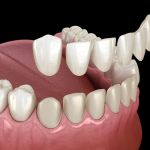- Why Smoking Affects Dental Health
- Oral Health Risks for Smokers
- Dental Care Tips for Smokers
- How to Quit Smoking for Better Oral Health
- Importance of Regular Dental Check-ups for Smokers
Why Smoking Affects Dental Health
Smoking is not only detrimental to your lungs and heart, but it can also have a significant impact on your oral health. For smokers, taking care of your teeth and gums is even more critical, as smoking can exacerbate dental issues that might otherwise be less severe. The chemicals in tobacco products can stain your teeth, contribute to bad breath, and cause serious gum disease, among other problems.
For smokers, regular brushing and flossing may not be enough to maintain healthy teeth and gums. Smoking reduces blood flow to the gums, which can prevent your body from effectively fighting infections. As a result, smokers are at a much higher risk of developing gum disease, tooth decay, and even tooth loss.
Understanding the specific oral health risks associated with smoking and learning the proper dental care habits can help smokers mitigate these effects. This article explores the common oral health issues smokers face, and it offers helpful tips for maintaining healthy teeth and gums despite the challenges posed by smoking.
Oral Health Risks for Smokers
Smokers are at an increased risk of several oral health issues. Some of the most common problems associated with smoking include:
1. Gum Disease
One of the most significant risks smokers face is gum disease. Smoking weakens the immune system, making it more difficult for the body to fight off infections, including those in the gums. As a result, smokers are more likely to develop gingivitis (inflammation of the gums) and periodontitis (a more severe form of gum disease). These conditions can cause swelling, bleeding gums, and even tooth loss if left untreated.
2. Tooth Staining and Discoloration
Tobacco products can cause yellow and brown stains to form on the surface of your teeth, leading to a dull and discolored smile. Over time, these stains can become more permanent, making your teeth appear unhealthy and unattractive. While regular brushing can help to some extent, it’s challenging to remove the deep stains caused by smoking without professional cleaning.
3. Bad Breath
Smokers are more likely to experience persistent bad breath, also known as halitosis. The chemicals in tobacco smoke can dry out the mouth and reduce saliva production, which is essential for neutralizing acids and washing away food particles and bacteria. This leads to an increase in bacteria in the mouth, contributing to foul-smelling breath.
4. Increased Risk of Oral Cancer
Smoking is a major risk factor for oral cancer. The toxins in tobacco products can damage the cells in your mouth, leading to the development of cancerous growths. Smokers are more likely to develop cancer of the lips, tongue, cheeks, gums, and the roof or floor of the mouth. Regular dental check-ups are essential for detecting oral cancer early and reducing the risks associated with smoking.
Dental Care Tips for Smokers
Smokers need to be proactive when it comes to maintaining oral health. While smoking may cause long-term damage, there are steps you can take to reduce the risks and prevent further deterioration of your teeth and gums. Below are some effective dental care tips for smokers:
1. Brush and Floss Regularly
For smokers, maintaining a regular brushing and flossing routine is even more critical. Brushing your teeth at least twice a day with fluoride toothpaste and flossing daily helps to remove plaque buildup and prevent gum disease. Use a toothbrush with soft bristles to avoid irritating the gums. Additionally, consider using an electric toothbrush for more efficient cleaning, particularly if you're dealing with stubborn stains.
2. Use a Whitening Toothpaste
Since smoking can cause significant staining, using a whitening toothpaste can help minimize the appearance of stains. These toothpastes are formulated with mild abrasives that scrub away surface stains, leaving your teeth looking cleaner and brighter. However, for more stubborn stains, consider professional whitening treatments from your dentist.
3. Rinse with an Antiseptic Mouthwash
Using an antiseptic mouthwash can help combat bad breath and reduce bacteria in the mouth. Look for mouthwashes that contain antibacterial agents like chlorhexidine or cetylpyridinium chloride. Mouthwash can also help in preventing gum disease by reducing plaque buildup between teeth, which brushing and flossing may miss.
4. Stay Hydrated
Smoking can lead to dry mouth, which increases the risk of cavities and gum disease. Drinking plenty of water throughout the day helps keep your mouth hydrated, promoting saliva production. Saliva is essential for washing away food particles and neutralizing acids in the mouth, helping to prevent bad breath and tooth decay.
5. Quit Smoking
The most effective way to improve your oral health is to quit smoking altogether. Quitting can dramatically reduce your risk of gum disease, oral cancer, and tooth loss. It can also help reverse some of the damage caused by smoking, such as gum recession and staining. If you’re struggling to quit, seek help from a healthcare provider or join a smoking cessation program.
How to Quit Smoking for Better Oral Health
While dental care tips can help manage some of the issues caused by smoking, the most significant step toward improving your oral health is quitting smoking. Here are some strategies to help you quit smoking and improve your oral health:
1. Set a Quit Date
Choosing a specific date to quit smoking can help you mentally prepare for the challenge. Pick a day that is not stressful and gives you time to gradually reduce your cigarette intake in the days leading up to it.
2. Seek Support
Quitting smoking is difficult, but it’s easier when you have support. Talk to your dentist, healthcare provider, or family members about your decision. Consider joining a support group or using smoking cessation programs or apps to track your progress and stay motivated.
3. Consider Nicotine Replacement Therapy
Nicotine replacement therapies (NRTs) such as patches, gum, or lozenges can help reduce withdrawal symptoms and cravings. These tools can be especially helpful in the early stages of quitting smoking.
4. Stay Active and Distract Yourself
Physical activity can help manage cravings and improve your overall health. Take up a hobby, exercise, or engage in activities that distract you from the urge to smoke. The more engaged you are, the less likely you’ll be to reach for a cigarette.
Importance of Regular Dental Check-ups for Smokers
For smokers, regular dental check-ups are essential for maintaining oral health. Even if you follow the best dental care practices, smoking still increases your risk for a variety of oral health problems. Your dentist can identify issues such as gum disease or oral cancer early, when they are most treatable. Regular cleanings and exams also help remove the deep stains that are difficult to address with at-home care alone.
For optimal oral health, smokers should aim to visit their dentist at least twice a year for professional cleanings and exams. If you’re experiencing symptoms such as bleeding gums, bad breath, or tooth sensitivity, don’t wait for your next scheduled appointment—seek immediate dental care.
For more information on oral health products and services tailored to smokers, visit Dentistry Toothtruth, where you can find the best recommendations to maintain healthy teeth and gums despite the challenges of smoking.







 Fox Family Dental4.0 (787 review)
Fox Family Dental4.0 (787 review) Nashua Dentistry and Orthodontics for Children4.0 (370 review)
Nashua Dentistry and Orthodontics for Children4.0 (370 review) Gardena Dental Care4.0 (416 review)
Gardena Dental Care4.0 (416 review) HealthPartners Dental Clinic Woodbury2.0 (24 review)
HealthPartners Dental Clinic Woodbury2.0 (24 review) East Hill Dental5.0 (156 review)
East Hill Dental5.0 (156 review) Tacoma Dental Care, Dr. Thi Truong Nguyen, DMD.5.0 (29 review)
Tacoma Dental Care, Dr. Thi Truong Nguyen, DMD.5.0 (29 review) The Importance of Oral Health Education During Pregnancy for a Healthy Pregnancy
The Importance of Oral Health Education During Pregnancy for a Healthy Pregnancy Best Tips for Brushing Your Teeth Properly for Healthy Gums: Essential Techniques for Oral Health
Best Tips for Brushing Your Teeth Properly for Healthy Gums: Essential Techniques for Oral Health Why Skipping Dental Checkups Can Lead to Bigger Oral Health Problems
Why Skipping Dental Checkups Can Lead to Bigger Oral Health Problems Advantages of Porcelain Dental Restorations
Advantages of Porcelain Dental Restorations How Can Diabetes Cause Tooth and Gum Problems? Preventing and Managing Oral Health Issues
How Can Diabetes Cause Tooth and Gum Problems? Preventing and Managing Oral Health Issues Healthy Habits for Promoting Good Oral Health and Hygiene: Tips for a Healthy Smile
Healthy Habits for Promoting Good Oral Health and Hygiene: Tips for a Healthy Smile